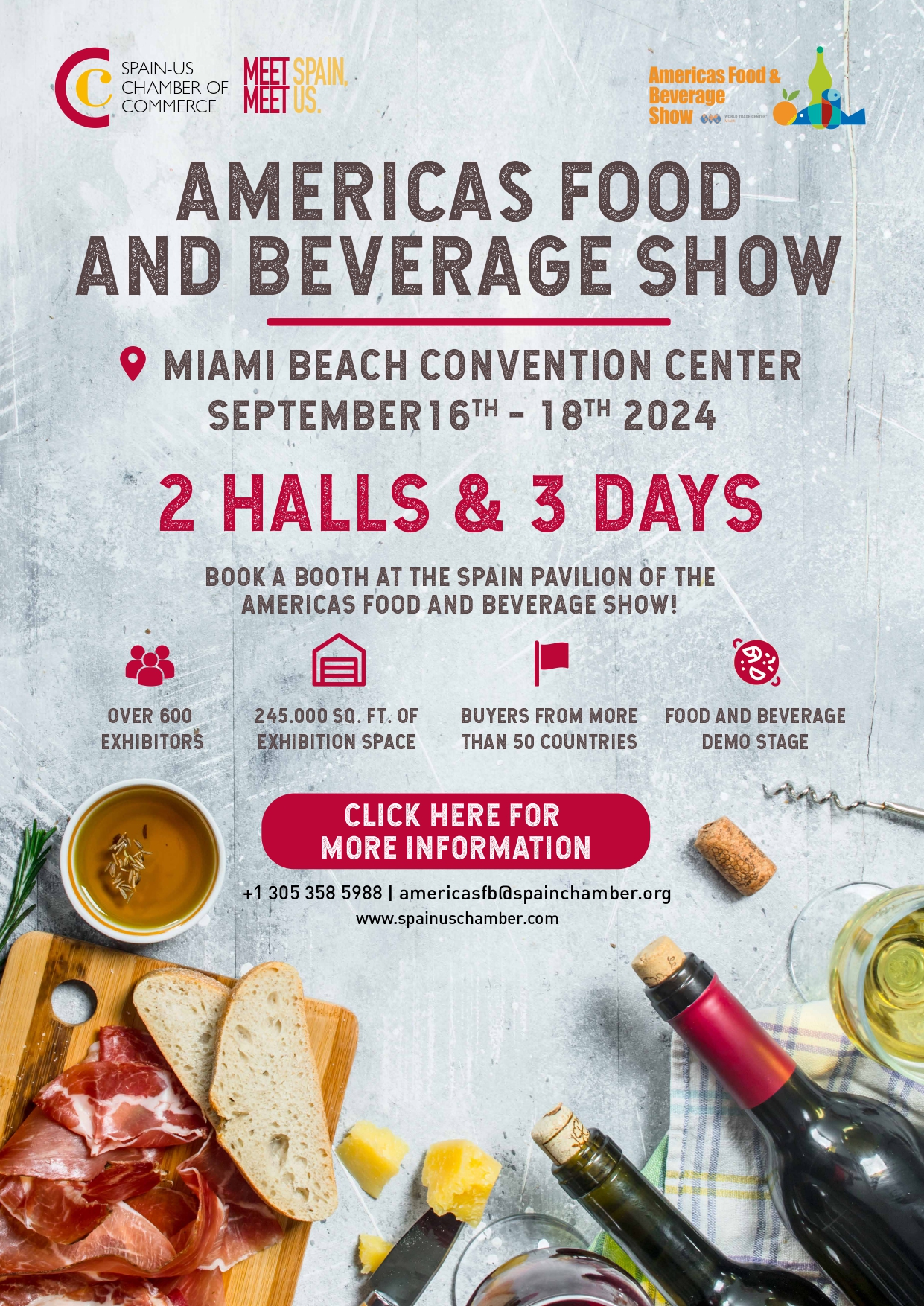
- By: Spain-US Chamber of Commerce, Inc.
This article summarizes two new important regulations affecting importers in the U. S.: The Foreign Supplier Verification Programs and the need to obtain a Unique Facility Identifier (UFI).
The Foreign Supplier Verification Programs (FSVP)
FSVP is mandated by the Food and Drug Administration (FDA) Food Safety Modernization Act (FSMA). A central tenet of that law is that the same preventive food safety standards apply to food consumed in the U.S., regardless of where the food is produced.
Below is a summary of the keys of the regulation on foreign supplier verification programs (FSVPs) for importers of food for humans and animals adopted the FDA. This regulation applies since the first compliance dates in May 2017.
FSVP requires importers to verify that their foreign suppliers of food for human and animal consumption meet applicable FDA safety standards. It requires importers to verify that food they import into the United States is produced in compliance with the hazard analysis and risk-based preventive controls provided in the Federal Food, Drug, and Cosmetic Act (the FD&C Act), and that imported food is not adulterated or misbranded with respect to allergens labeling.
Importers under FSVP
An importer is the U.S. owner or consignee of an article of food offered for import into the U.S., or the U.S. agent or representative of the foreign owner or consignee at the time of entry.
How FSVP works
With the FSVP Programme, importers are responsible for:
- Determine the known and foreseen risks with each food product.
- Assess the risk of a product, taking into account a risk-based analysis and the performance of the foreign supplier.
- Use the risk-based analysis of the products and the performance of the foreign supplier to approve suppliers and determine the appropriate verification activities.
- Perform suppliers’ verification. The importer must establish and follow written procedures to ensure, in most instances, that it only imports from approved foreign suppliers. The importer must conduct appropriate supplier verification activities and has the flexibility to tailor them to unique food risks and supplier characteristics. Verification activities can include but are not limited to annual on-site audits of the supplier’s facility, sampling and testing, etc.
- Perform corrective activities when needed.
FSVP Procedures
Importers must establish and follow written procedures to ensure that they import foods only from foreign suppliers approved based on an evaluation of the risk posed by the imported food and the supplier’s performance or, when necessary on a temporary basis, from unapproved suppliers whose foods are subjected to adequate verification activities before being imported.
Besides, importers are required to develop, maintain and follow an FSVP for each food brought into the United States and the foreign supplier of that food. If the importer obtains a certain food from a few different suppliers, a separate FSVP would be required for each of those suppliers. Similarly, if the importer obtains many different foods from a single supplier, a separate FSVP would be required for each food.
Certain importers that are also manufacturers/processors are considered in compliance with most FSVP requirements in some cases:
- If they are in compliance with the supply-chain program requirements under the preventive controls rules.
- If they implement preventive controls for the hazards in the food in accordance with the requirements in the preventive controls rules.
- If they are not required to implement preventive controls under those rules in certain specified circumstances. Examples of such circumstances include when the type of food (e.g., such as coffee beans) could not be consumed without application of a preventive control, or when the customer will be significantly minimizing or preventing identified hazards) and they comply with requirements for disclosures and written assurances.
Risk evaluation
The evaluation of the risk posed by the imported food and the supplier’s performance must be reevaluated at least every three years, or when new information comes to light about a potential hazard or the foreign supplier’s performance.
Importers are not required to evaluate the food and supplier or conduct supplier verification activities if they receive adequate assurances that a subsequent entity in the distribution chain, such as the importer’s customer, is processing the food for food safety in accordance with applicable requirements. FDA has extended the compliance date for obtaining these written assurances for two years. However, as required by the final rule, importers must disclose in documents accompanying the food that the food is not processed to control the identified hazard.
Imported food not covered by FSVP
- Juice, fish, and fishery products subject to and in compliance with FDA’s Hazard Analysis and Critical Control Point (HACCP) regulations for those products, and certain ingredients for use in juice and fish and fishery products subject to the HACCP regulations.
- Food for research or evaluation.
- Food for personal consumption.
- Alcoholic beverages and certain ingredients for use in alcoholic beverages.
- Food that is imported for processing and future export.
- Low-acid canned foods (LACF), such as canned vegetables, but only with respect to microbiological, hazards covered by other regulations, as well as certain ingredients for use in LACF products (but only with respect to microbiological hazards).
- Certain meat, poultry and egg products regulated by the U.S. Department of Agriculture at the time of importation
FSVP: Additional resources
New requirement for importers: the Unique Facility Identifier (UFI), the DUNS Number
Another new requirement by FSMA is that, starting on October 1st 2020, every FSVP importer will be required to have an identification number for its facilities, the Unique Facility Identifier (UFI); the DUNS (Data Universal Numbering System) number. The DUNS number is currently the only UFI approved by the FDA. The DUNS number is the only acceptable Unique Facility Identifier. The DUNS is a numerical identifier assigned to a specific business location.
How to obtain a DUNS Number
The DUNS number is assigned and regulated by private company Dun & Bradstreet and can be applied for free through the Dun & Bradstreet website. You can also call 1.800.234.3867 or email them at govt@dnb.com
Sometimes getting the DUNS number takes 5 business days but sometimes it can take up to 45 days or more depending on the applications received or other circumstances. It is thus recommended that companies apply for the DUNS number as soon as possible in order to receive it on time by October 1st 2020 and with no extra fees by D&B.
For any inquiries about the DUNS number, companies can directly contact D&B at or use the email or phone number provided above.
Besides, for general inquiries about this topic, companies can also contact the FDA specialists at the Office of International Programs (FDACSI@fda.hhs.gov) with the following email subject: “Dun & Bradstreet Number Inquiry”.
DUNS Number: Additional resources
• Questions and Answers Regarding Food Facility Registration (Seventh Edition): Guidance for Industry.
• Recognition of Acceptable Unique Facility Identifier (UFI) for the Foreign Supplier Verification Programs Regulation: Guidance for Industry.
- The Official Chamber of Commerce of Spain in the United States is a recognized nonprofit organization aimed at enhancing business and commercial ties between Spain and the United States. Founded in 1980 and located in Miami, this Chamber is of considerable importance due to its strategic location, multicultural component, and excellent communication network. Miami is the perfect city to target both the American and Latin American markets.
- www.spainuschamber.com
















